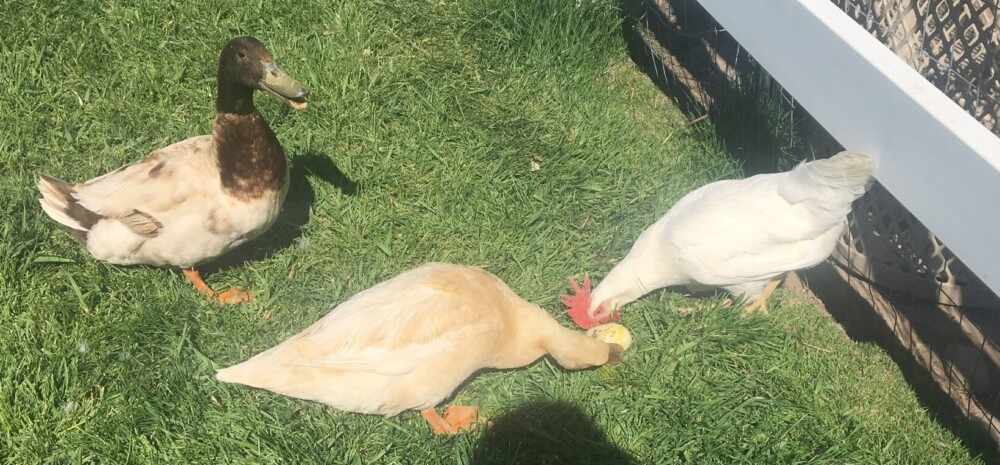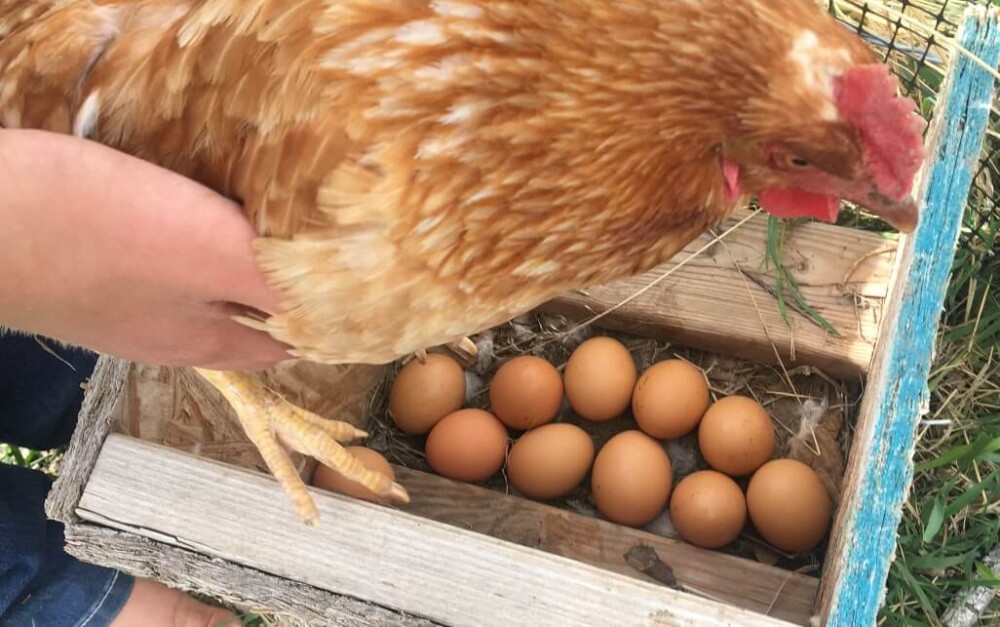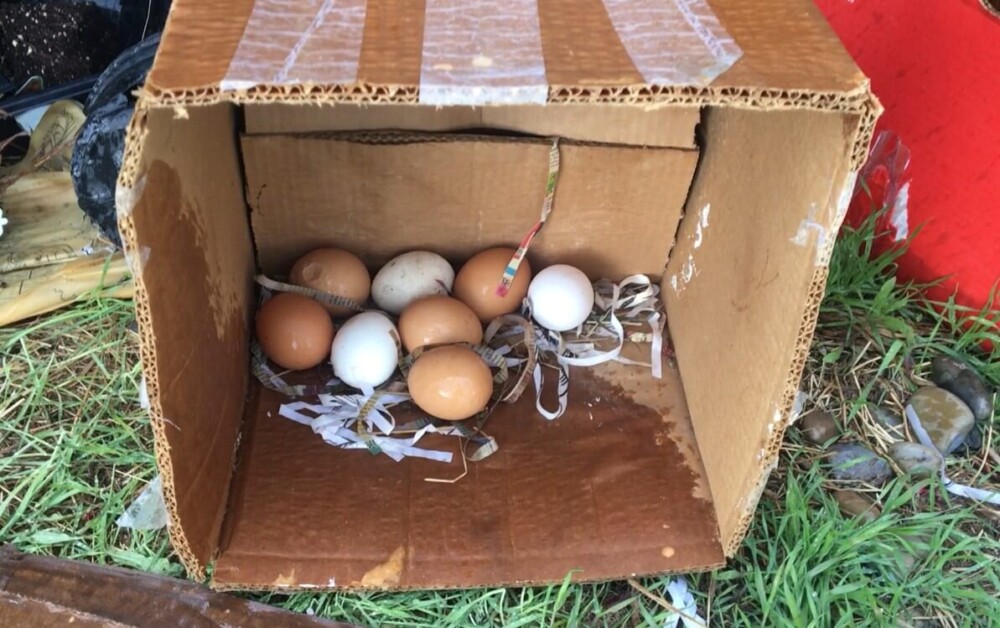In the four years that I’ve been raising chickens, I’ve had several periods where my chickens stop laying eggs. Each time, another issue has been the cause. I’ve talked to dozens of other chicken owners, and everyone I’ve talked to has expressed the same experience: At some point, their chickens stop laying.
If you are raising chickens for income or sustainability, a drop in production can be devastating. Last winter, when we had a chicken turn into an egg eater- it was tough to stop getting eggs suddenly. My daughter had 5 dependable buyers, and she lost all but 2 of them when our egg production dropped.
There are ten reasons your chickens aren’t laying eggs. Most of the time, you can take action and help to mediate the impact and length of a drop in production. These reasons are:
- Age
- Improper diet
- Less Daylight
- A shock to the system / Stress
- Egg Eating
- Molting
- Broody
- Predator
- Bullying
- Hiding eggs
Hen Age Affects Egg Laying.
Age affects your hens’ egg-laying in two ways. First, you may have purchased chicks, and based on breed specifications; you expect them to lay within 3-4 months. Some breeds even advertise that chicks will start laying within 2 months. But, often, that is a very optimistic view.
I have purchased dozens of chicks from many sources and many varieties of chicken. I have only once had a chick start laying within the prescribed time. Most of the time, my chicks start laying around 5 months. If your chicks aren’t laying yet, you may need to hold tight a little longer.
Another age-related reason your hens aren’t laying is that they are getting old. Although 2 or 3 years may not seem old for a chicken, modern egg-laying breeds have been bred for heavy egg production. As a result, they only lay for a couple of years. Between about 6 months of age and 2-2.5 years of age, a hen will lay eggs at the highest frequency. After 2 years, her egg production will drop drastically.
That’s an average. I currently have 4 old hens that are still laying as many eggs as the younger chicks. They are a Silver Laced Wyandotte, a Barred Rock, and a Buff Orpington. This could be individual genetics, as I’ve had other older hens from the same varieties that haven’t laid as long or as heavy.
2. Diet Greatly Affects Egg Production
Hen’s diet and health have a huge impact on her egg production. Ideally, chickens can be free-range and don’t require a lot of additional feed or supplements. However, I have found that even with acres of land to free-range on, my chickens don’t lay as many eggs without some layer feed and oyster shells.
That probably because chickens do best, like most of us, with a wide variety of nutrients. I sort of think of layer food as a multivitamin. Your hens can probably forage for the bulk of their nutritional needs, but layer food is specifically formulated for optimal egg-laying health. It fills in the gaps in their nutritional needs.
Another supplement that hens need constant access to is oyster shells. If you are providing layer food, they may not need as much calcium substitutions. My own hens hardly touch the oyster shells during the winter when they eat almost entirely layer feed.
3. Shorter Daylight: Winter Months
Most breeds of chickens need at least 10 hours of daylight (at a minimum) to produce eggs. As a result, you will likely see a drop in egg production in the darkest part of winter. Some chicken breeds continue to produce eggs all winter long. For a full list, check out this article. If you live in the north and see short winter days, getting cold- and dark-hardy chicken breeds can help even out your egg production.
Some chicken owners adjust for the reduction in daylight hours by adding a light to the coop for 10-12 hours a day. I haven’t done this because I’ve been worried about the fire danger, my hens flying into the light and getting burnt, and because I’ve been able to combat the lower egg production through a quality feed and the right breeds.
During the November – February months, I see a drop in egg production, but compared to my neighbors, it’s minimal. My hens reduce their egg production by about 20%, while most of my neighbors see an almost complete stop to their hen’s egg production. Check out this article on how to keep your hens producing eggs during the winter.
4. Stress and Shock
Hens that are stressed out or have a shock can stop laying eggs for a while. This could happen for a myriad of reasons. A predator outside the coop can stress out hens, a new bully within the flock, health ailments, stress, or a change in routine. There are a lot of factors that can stress and shock your hens.
If your hens stop producing eggs suddenly, investigate the coop. Look for signs of predators; digging, torn fencing, claw marks, etc. Once when I had a drop in egg production, we discovered a skunk in the coop. I was shocked to see the skunk in the coop and the hens acting as if nothing was wrong. But, the skunk was feasting on newly laid eggs. I believe the skunk introduced my hens to egg-eating.
5. Egg Eating Hens
Chickens are omnivores. They will gladly eat flesh, including bugs, meat, and eggs. If a hen gets a taste of a raw egg, she can quickly develop a taste for it. There are two levels of egg-eating chickens, and I’ve had both. One type of egg-eating chicken won’t harm the egg but will eat it if it’s cracked or broken by accident or from another hen.
The other type of egg-eating chicken will go after an egg and crack it to eat.
Those are the most dangerous. This more aggressive egg-eater will quickly teach your entire flock to go after eggs and is much harder to cure. You can stop an egg-eater in her tracks!
If your hens are eating eggs, they are still laying them but getting to them before you do. Some nesting boxes are designed to prevent egg-laying, but I’ve found that they are also harder and more likely to break the eggs as I’ve investigated using them. You must take action as soon as you suspect egg-eating!

6. Molting Hen
During the spring and fall, chickens are more likely to molt. Molting is when a chicken loses many of its old feathers and grows new ones. During molting, hens often reduce their egg production.
But, molting can be minimized through a good layer feed or a high protein diet. Hens that regularly get enough protein in their diet molt much less frequently, and the period of molting last much shorter than hens without adequate protein.
If you want to reduce the molting extreme of your hens, make sure to feed them a good layer feed during the spring and fall. I have noticed that by providing at least some layer feed to my hens all year round, I have reduced long molting periods by at least half over the last four years.
7. Broody Hen
Another cause of egg-production loss is a broody hen. A broody hen acts like she wants to raise a clutch of chicks. If you are tempted to let her hatch her chicks, and you have a rooster, so it’s possible, there are a few other things to be aware of. Some breeds are much better mothers than other breeds.
Of all the hens I’ve had that have temporarily gone broody, the only breed that has successfully hatched and raised chicks is my Buff Orpington hens. The Leghorn, Rhode Island Red, Black Sexlink, Wyandotte, Australorp, ISA Brown, Red Sexlink, and others have gone broody but not had the attention span to sit on the eggs long enough for the chicks to hatch.
If you don’t have a rooster, you’ll need to break your hen of her broodiness. Check out this article for a guide on what to do when your hen is broody.
8. Predators
I’ve already mentioned the skunk in the coop, but predators can affect egg production in many areas. Like the skunk we found, a predator may eat the eggs and leave the chickens alone. I’ve also read about snakes doing basically the same thing- leaving the hens alone but eating the eggs.
A predator can also frighten and terrorize the hens so that the emotional trauma causes them to stop laying. This can happen if a raccoon, weasel, or fox stalks the coop at night and cannot gain access but still scares your flock.
It can also happen if a predator gets into your coop and kills a chicken or two. The rest of the flock may completely stop laying after that event. I once had a rooster who died defending his ladies, but the hens didn’t lay any more eggs for several weeks afterward. It was several weeks after we fixed the hole in the fence before the hens felt safe again.
9. Bullying Hens
Bullying can cause a drop in egg production because the hens on the bottom of the pecking order cannot get the nutrients and water they need for good egg production. This usually only happens in tighter spaces and places where there is limited food and water.
You can combat bullying by providing numerous places for hens to obtain food and water and adequate space for hens to escape their tormentors. Most of the time, chickens bully because of boredom, but other factors can influence it. Find out how to stop bullying.
10. Hiding Eggs
As my hen’s age, I find that they use the nesting boxes less and less. Instead, they seem to find joy in finding other places to lay eggs. I have often thought that we had a drop in egg production only to find a clutch of 20+ eggs. Just last month, I found 5 clutches of eggs each within a week!
Hens will lay eggs anywhere that’s dark and quiet. I’ve found eggs in a box, under the porch, in a feed bag, and under a bush. I even had a hen that laid her eggs from the branches of my pine tree, which always resulted in a broken egg.
You can retrain your hens to lay in the nesting box. First, make sure that you have a nesting box for every 3-4 hens. Make sure that your nesting boxes have a layer of hay or other cushioning for the hens. Next, locking hens in the coop for 1-2 days resolidifies that they need to lay eggs in the coop.
I’ve had success most of the time with these steps. But, every once in a while, you may still have a stubborn hen that wants to lay elsewhere. You can let her out of the coop later in the day to make sure she lays in the coop or observe her find out where she’s laying.
Conclusion
Even when your hens stop laying as many eggs, there are many actions you can take to solve the issue. With a little practice and experimentation, you’ll be able to identify the causes for a drop in eggs more easily. And, even better, you’ll be able to keep your hens laying optimally proactively!
My Favorite Chicken and Duck Supplies
This list contains affiliate products. Affiliate products do not cost more but helps to support BestFarmAnimals and our goal to provide farm animal owners with accurate and helpful information.
Manna Pro Oyster Shell keeps eggs strong. Before I gave my chickens oyster shell, I had the oddest eggs, many with weak and irregular shells. Now, I don’t have an issue.
Layer Feed by Manna Pro. I like pellets rather than crumbles as my chickens eat them better and less gets wasted or scavenged by rodents. A good layer feed makes the difference in hens laying many more eggs.
My chickens love this mealworm treat, which gives added protein, something that’s great during molting and winter months.
There are many ways to feed and water your chickens. I like this food and water setup the best because it reduces waste, saves me time feeding and watering, and keeps the food fresh longer. Except, in the winter, I use a heated waterer. The only problem is the heated waterers need to be replaced every few years.
I love this chicken veggie hanger. It makes it easy to give your chickens produce from the garden and keep them occupied in the winter with a fresh head of lettuce.
These chicken toys are a hoot! They will help curb bullying and keep your chickens active, especially in the winter when hens tend to get more lethargic.


